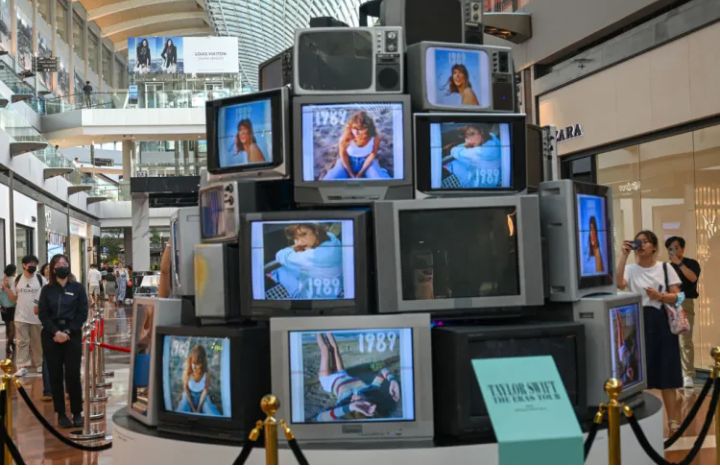CELEBRITY
Look What Taylor Swift’s Exclusive Singapore Shows Made Its Southeast Asian Neighbors Do

Fans across Southeast Asia were seeing Red when news broke last year that Singapore would be the only regional stop for Taylor Swift’s Eras Tour. But as concertgoers swarm to Singapore for the pop star’s six sold-out shows starting this weekend, it seems like Bad Blood is also brewing among neighboring government officials, amid allegations that Singaporean authorities specifically brokered a deal for TIME’s 2023 Person of the Year to Stay Stay Stay in the city-state.
On Wednesday, Philippine lawmaker Joey Salceda called on the Philippines’ Department of Foreign Affairs to pressure its Singaporean counterpart agency for an explanation on the Delicate situation, local media reported.
If true, [this] isn’t what good neighbors do,” said Salceda, adding that while the grant gave a significant boost to Singapore’s economy, “it was at the expense of neighboring countries, which could not attract their own foreign concert goers, and whose fans had to go to Singapore.”
“It also runs contrary to the principle of consensus-based relations and solidarity on which the ASEAN was founded,” he said, referring to the Association of Southeast Asian Nations, a body that helps to coordinate cooperation in the region
Speculations of an exclusivity deal between Singapore and Taylor Swift’s were first brought up by Thai Prime Minister Srettha Thavisin, who told a Bangkok business forum on Feb. 16 that he had heard from Swift’s concert promoter Anschutz Entertainment Group (AEG) that the Singapore government had offered up to $3 million to Swift’s team for each of the show’s she would put on in Singapore, in exchange for a promise not to perform anywhere else in Southeast Asia during her Eras Tour.
AEG did not immediately respond to TIME’s request for comment, while Singapore’s tourism and youth authorities confirmed to TIME in a joint statement that the tourism board had “supported the event through a grant” without specifying the sum or details of any restrictive clause
If I had known this, I would have brought the shows to Thailand,” Srettha said at the forum, describing the Singapore government as “clever” for allegedly brokering an exclusive deal with the organizers.
There’s little wonder why governments are desperate to have Swift grace their stadiums. The Grammy-winning singer is known to revitalize local economies wherever she goes. More than 300,000 tickets have been sold for Swift’s Singapore shows, and buzz surrounding the concert is giving the city-state a
phenomenal economic boost. Tourists traveling in to catch Swift’s performance have driven up local hotel and flight prices by up to 30%, and experts estimate that Swift’s concerts could generate up to $500 million in tourism revenue—along with the cascading economic impact of the city solidifying its reputation as a massive events hub.
The youth ministry, its statement to TIME said, “recognized that there will be significant demand from Singaporeans as well as fans across the region for her to perform in Singapore, and worked directly with AEG Presents for Taylor Swift to perform in Singapore
While some are decrying Singapore’s maneuver, others see opportunity in trying to replicate its success. Indonesia’s tourism minister told Bloomberg earlier this month that they “need ‘Swiftonomics’ for Indonesian tourism” and were introducing policies to entice more tourists to visit the country, including a seed fund of up to 2 trillion rupiah (about $127 million) per year to support music, sports, and cultural events.
And last week, when asked if Hong Kong would consider “similar arrangements” when trying to attract pop concerts to revive the city’s post-pandemic economy—in reference to Swift’s alleged deal in Singapore—the Chinese enclave’s leader John Lee said: “Amid Hong Kong’s fierce competition with other cities that have been striving to improve themselves, we have to be relentless in our efforts to lure mega events including matches, sports events and cultural events.”
Hong Kong authorities recently dedicated nearly $2 million in grants to welcome TIME’s 2023 Athlete of the Year Lionel Messi and his team Inter Miami to the city for a friendly match—though that ended in a PR disaster.






